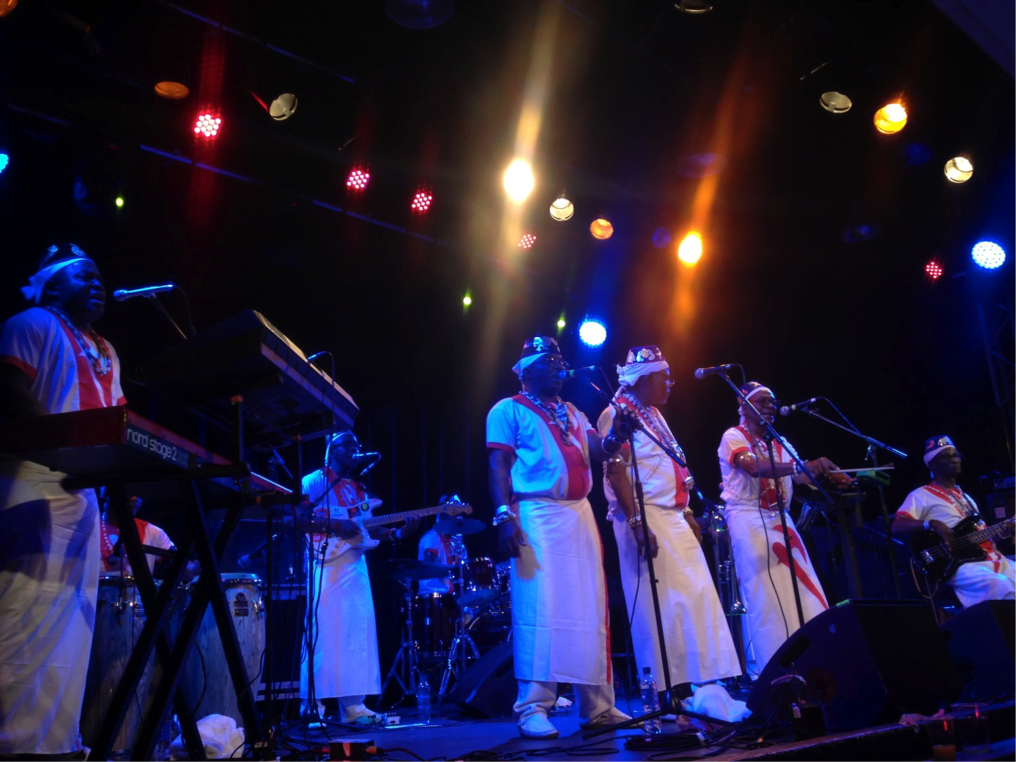Originally formed in 1966 in the coastal town of Cotonou, Orchestre Poly Rythmo became one of Benin’s finest exports and, consequently, a flagbearer for African music. With their exuberant brand of afro-funk and party fuelled soukous, their sound and their on-stage energy defy their advancing years. Thanks in no small part to a burgeoning wave of interest in afrobeat and promotion through record labels including Analog Africa and Soundway, Orchestre Poly Rythmo’s renaissance after years spent in the wilderness is now complete, with the recent release of their latest LP, Madjafalao. At London’s 229 the Venue, we were treated to a full rendition of this new work.
The heavy funk sound of “Finlin Ho”, with its high-life party vibe, brought with it an effervescent guitar solo, reminiscent of a classic Ernie Isley sound, leaving this audience member in no doubt as to the influence of American soul music on this band. The horn section, comprised of a trombone and a trumpet, was as brassy as brass could be and also harked back to the likes of The JBs and Muscle Shoals. Both horn players also offered themselves up throughout the performance as rhythmic cheerleaders, with their colourful shakers played above their heads like a pair of pom-poms. The playful quality continued throughout, with the audience called upon a number of times with a call and response and handclaps. Passi provided a real carnival vibe, with a celebratory Latin-tinged keyboard solo once again illustrating the extent of Orchestre Poly Rythmo’s influences.
At the heart of these influences was the great Fela Kuti. With James Brown also at the fore, Orchestre Poly Rythmo had sought a similarly enigmatic frontman, with the voice to match. Vincent Ahehehinnou leads the band with a typically youthful zest and, at times, a tone that would have fitted in on a classic Stax record. Underpinning it all was the rich bass sound provided by long-time member, Bentho Gustave. Playing such heavy riffs, it’s no surprise he stayed seated throughout the gig.
After finishing with the tribal, dense percussion of “Ouesse”, the band was repeatedly called back on for an encore; like Candyman, but far less scary. The groove within “Heritage”, along with the vocals, provided a narrative that, even without understanding the lyrics, appeared to be recounting history. Indeed, much of Orchestre Poly Rythmo’s back catalogue provides commentary on their mother country and living through difficult times.
The horn-driven funk of “Madjafalao”, a large slice of classic sounding afrobeat and the title track of their latest record, rounded off a fantastic night of fantastic sounds. 229 was by no means full, but those in attendance left full of awe.


